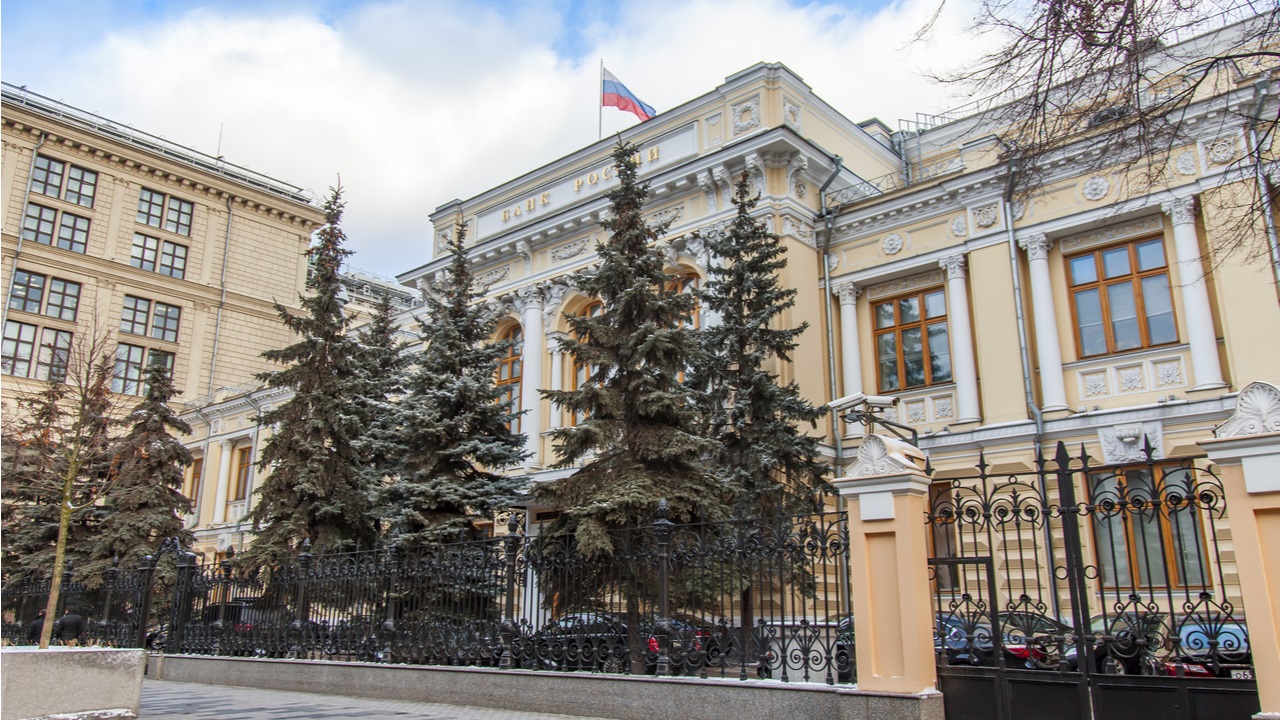
The Central Bank of Russia is currently reviewing various ways to prevent Russians from investing in cryptocurrency. One the options on the table is to block card payments to certain recipients such as crypto exchanges, a media report has unveiled. A recent meeting at the State Duma has indicated, however, that the authority’s hardline stance is not backed by other government institutions in Moscow.
Russia’s Central Bank Considers Mechanisms to Limit Crypto Investments
In talks with financial market participants, the Central Bank of Russia (CBR) has been discussing several approaches to restricting access to cryptocurrencies for domestic investors, the Russian edition of Forbes magazine has revealed, quoting sources familiar with the matter. According to Andrey Mikhaylishin, founder of a crypto project tested in the regulator’s sandbox, one of the options under consideration is to block card payments to crypto platforms.
The monetary authority may try to oblige banks to stop transactions with certain Merchant Category Codes (MCC), four-digit numbers assigned to the recipients of payments depending on the services they offer. The code used for digital asset exchanges is 6051, the report notes. Mikhaylishin learned that the idea had been discussed from a central bank employee and the publication was able to confirm the information from its own source close to the CBR.
While Bank of Russia recommended commercial banks block cards and wallet accounts used by suspicious entities, among which it listed crypto exchange service providers, the institution has yet to release an advisory report detailing its comprehensive position on cryptocurrencies. The report should be reviewed by a working group set up at the State Duma which is now considering regulations for crypto-related activities that remain outside the scope of the law “On Digital Financial Assets.” This law went into force at the beginning of the year.
The group held its first meeting at the lower house of Russia’s parliament on Tuesday. During the discussions, Deputy Governor Olga Skorobogatova made it clear the regulator was not drafting a law that would ban cryptocurrencies but at the same time, she emphasized the CBR’s firm opposition to their circulation in the country. The central bank plans to prohibit crypto investments, Skorobogatova said, according to the sources quoted by Forbes — an employee of the authority and another official, who were present at the meeting.
Bank of Russia Alone in Its Conservative Approach to Cryptocurrency Regulation
The two sources also shared that Bank of Russia’s hardline position was not fully supported by the other participants. Deputy director of Russia’s Federal Financial Monitoring Service, Herman Neglyad, proposed allowing cryptocurrencies to circulate while imposing strict controls over financial flows between the crypto space and the traditional financial system. Deputy Finance Minister Alexey Moiseev suggested limiting crypto purchases, but only for non-qualified investors.
In his opinion, it’s now too late to completely ban cryptocurrency, given that 10 million Russian citizens have already acquired one coin or another, as per the department’s own calculations. According to the Russian Association of Cryptoeconomics, Artificial Intelligence and Blockchain (Racib), 17.3 million people in Russia have crypto wallets and the real number may be even higher as the data does not cover traders who use VPNs.
The ministry’s press service commented to Forbes that banning cryptocurrencies now would create a lot of problems for Russians, as such a move would make their holdings illegal. Estimates quoted in Bank of Russia’s Financial Stability Overview for Q2 and Q3 of 2021 indicate that the annual volume of digital currency transactions made by Russian residents amounts to around $5 billion. And according to the head of the Financial Market Committee at the Duma, Anatoly Aksakov, Russians have invested 5 trillion rubles in crypto (over $67 billion).
Do you expect Russia to restrict card payments to cryptocurrency exchanges? Let us know in the comments section below.
from Bitcoin News https://ift.tt/3mxr0Is
Comments
Post a Comment